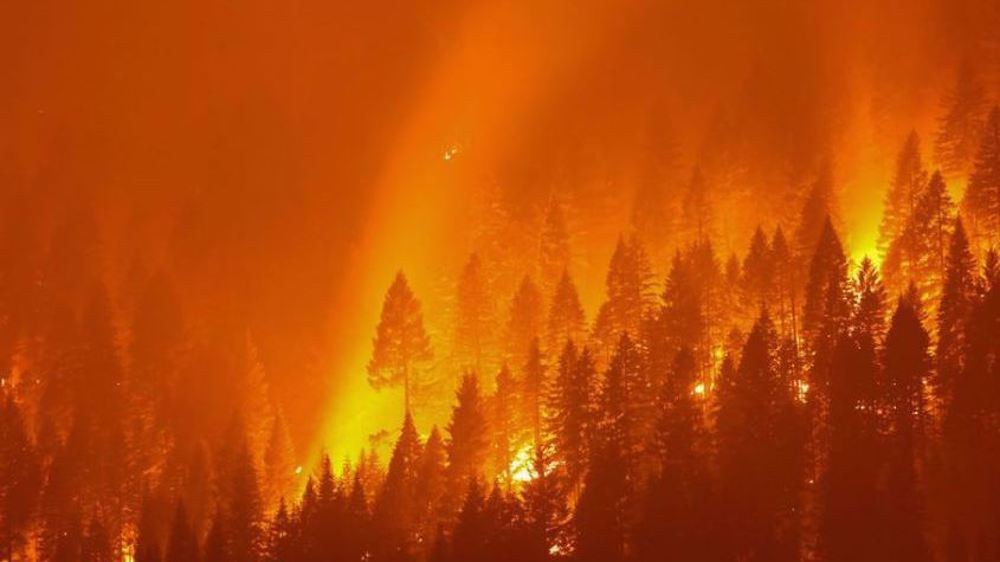
This picture shows a view of the massive Dixie Fire in Taylorsville, California. Climate experts link the recent frequency of fires and floods across the globe to global warming caused by the excessive use of fossil fuels such as oil, coal and natural gas. (File photo by Reuters)
Washington, October 26 (RHC)-- A recent poll has shown that 2 out of 3 Americans are discontented saying that the US government is not making enough effort to fight climate change in the country. Media reported on Tuesday that most Americans said the US government should do more to combat climate change.
The new Associated Press-NORC Center for Public Affairs Research poll showed that of all the US adults interviewed, 62 percent said the government is doing too little to reduce climate change, while 19 percent said it’s doing too much and 18 percent think it’s doing the right amount.
The new poll also showed that there is limited public awareness about the Inflation Reduction Act, a sweeping new law much touted by US President Joe Biden and his fellow Democrats that commits the US government to its largest-ever investment to combat global warming.
The Associated Press-NORC Center for Public Affairs Research poll found that despite the Democrats in Congress approving the law in August, 61 percent of US adults knew little to nothing about the new law, while about half said the new law won't make much of a difference on climate change, 33 percent said it will help and 14 percent think it will do more to hurt it, according to the poll.
The new law, which passed without a single Republican vote in either chamber, offers nearly $375 billion in incentives to accelerate the expansion of clean energy such as wind and solar power while speeding the transition away from fossil fuels such as oil, coal, and natural gas that largely cause global warming.
The law, combined with investments by states and the private sector, could help reduce US carbon emissions by about two-fifths by 2030 and bring down emissions from electricity by as much as 80 percent advocates say.
In related news, U.S. climate envoy John Kerry said on Tuesday that Washington needed to resume climate negotiations with Beijing after China halted cooperation on the issue following Speaker Nancy Pelosi’s (D-Calif.) visit to Taiwan in August.
Speaking at the Council on Foreign Relations, the former secretary of State insisted that the issue of global warming should transcend any dispute between the two countries.

